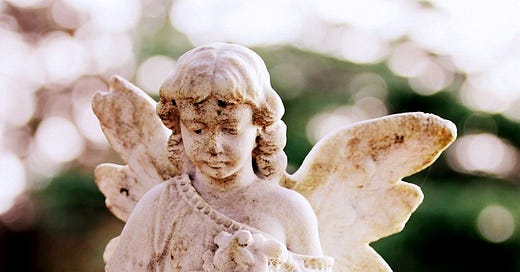
This past week, my social media feed filled with a picture of a woman who I was surprised I did not know—or even recognize. Her name, Jennifer Lyell, was not familiar, but her story was. Not because I had heard it before but because I had heard so many like it.
You can read about Jennifer Lyell’s life that ended far too soon in the following articles:
Some things she could not survive by Kristin Du Mez
Jennifer Lyell, SBC Abuse Survivor And Former Lifeway Executive, Has Died by Bob Smietana (on the Roys Report)
Kristin Du Mez stated in her article:
She had survived alleged sexual abuse at the hands of her seminary professor. For a time, she survived being viciously attacked, over and over again, by those who sought to make her out as the villain, the temptress, the whore. But she told me she didn’t think she could survive what was being done to her much longer.
Yesterday, her body gave out. The stated cause was a series of massive strokes. She was 47.
Let this sink in: She was 47.
Reading about what happened to Jennifer Lyell when she named her abusers gave me chills. She died far too soon with all the evidence that toxic stress and trauma were the cause. Twice in my life, I sought the assistance of lawyers over wrongful terminations. The second lawyer’s words struck deep in my survivor's soul. “You have a case, but if you pursue it, they will destroy you—it will be ugly. You should just go live your life.” And I did.
Keep in mind that I have only ever worked in faith-based positions. Continuing to seek faith-based jobs even after so much harm was a trauma response in itself, but that is not the point. Those who would have destroyed me were for all intents and purposes, godly Christian leaders. This was also true earlier in my life. I knew that what happened to Jennifer Lyell would be exactly what would happen to me should I name abusers. And just like she said to Kristen Du Mez, I didn’t think I would live through it.
Was that the right choice? For me, yes. For others, it would not be. But a cursory glance at Jennifer’s story in the two articles I shared will convince you that I certainly did correctly assess that I needed to protect myself. I will continue to do so. I am well aware of what will happen if I do not.
Since I was never part of the Southern Baptist Convention, it makes sense that I didn’t know Jennifer’s story. It makes even more sense that I came to the discussion of sexual abuse within the church later than most because my focus has been on all survivors of sexual abuse—and because I didn’t actually reach the point of connecting my abuse to clergy sexual abuse until recently.
I have not received negative attention concerning my identifying the abuse as being the result of clergy sexual abuse because I never named names. Generally, those who keep names secret are not destroyed.
It is always about silencing survivors—it is rarely about ending the abuse.
I did live, and now that my husband is going to live, we are hopeful that we can somehow stop the craziness that has followed us through the 45 years of our marriage—most of it caused by our trauma histories. A friend recently said that we deserved to live out our lives in peace. I am too vocal for that to be entirely possible, but I agree with my friend. I am hopeful and will continue not to name my abusers. Stories like Jennifer’s remind me of why.
Yet, not naming names isn’t the same as being silent. This McMusing is evidence of that. I believe that the cover-ups, disregard, and diminishment of the sexual abuse that is pervasive in so many areas of the church has stolen the soul of Christianity in America. For the most part, the average church-goer is not aware of the underbelly of sexual abuse in the church. It is easy to focus on the spiritual and believe the worst about women who speak their truth. Especially when the powerful attack them.
If there is one thing I have come to understand on this ten-year journey of healing, it is that the deepest unshakable faith—should one desire to pursue it—is not found in the pew, but in the trenches of life and very often, while travailing on the therapy couch. The danger in healing is that survivors find their voices and the agency to speak. The degree to which survivors choose to speak is most often matched by an equal level of retaliation.
I accept that I chose to speak to a degree that would allow me to live and I honor Jennifer Lyell for the level of courage it took to name names. Not all can or should do that but we need to honor those who do. Say her name.
I end with a few words from Kristen Du Mez’s article:
Jennifer, I’m so desperately sorry. May you now know the peace denied you in life, denied you by people who did evil in the name of the Jesus you loved.
Author’s Note: Pictures of me at 47 are barely recognizable by many who have met me since my healing journey from the impact of trauma—specifically sexual abuse within the context of the church from the age of 3 to 23. Only an intervention by a friend enabled me to lose 100 pounds and gain the strength that I would need to begin healing at 63. No one who knows me now can imagine the physical toll the abuse took on me for most of my life. The Body Keeps the Score is more than a title of a book; it is truth. I have no question what caused this tragic death. This isn’t about something that happened, it carries a lifelong impact that is made worse when a survivor speaks and is attacked.





So much perspective in this. Those who speak out and those who don’t. It’s a choice. Thank you for giving language to this complex and heartbreaking subject.
I’m grateful for your courage in speaking into this.